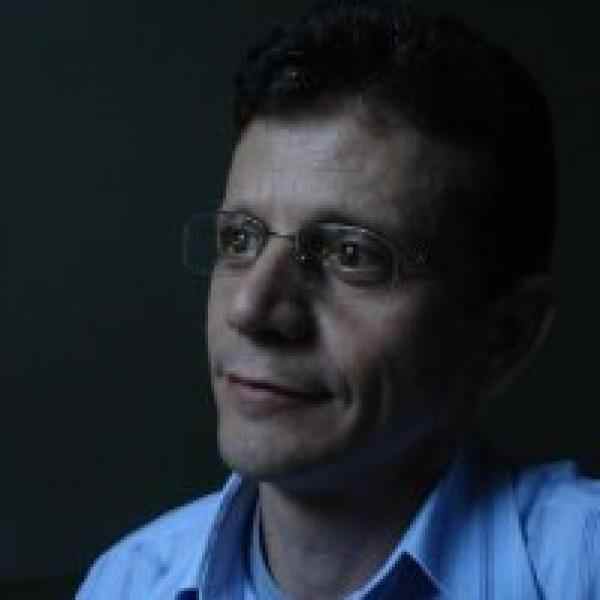Introduction
Walter Varanda is working with São Paulo's adult street population to ensure their basic survival and promote their long-term independence. He is engaging a wide array of individuals and institutions to encourage their active participation in crafting and implementing solutions to Brazil's homelessness problem.
The New Idea
Walter Varanda seeks to simultaneously rescue the individual humanity and dignity of existing street adults and transform the way society views and treats the problem of homelessness. To do so, he has developed a three-pronged approach. First, he is working directly with the adult street population, empowering them to organize and provide basic services for themselves. He has established an association run for and by street people, which addresses their basic needs and helps them to reintegrate into society. By identifying their most pressing needs and collectively designing appropriate solutions to their own problems, this association of street people breaks the pattern of assistance still prevalent among Brazilian churches, nongovernmental organizations, and government programs.
Second, Walter is working with existing social service organizations and other professionals who want to help. He is changing the dominant model of paternalistic service provision among organizations that currently work with street people. He is helping them transform their methodology from one that encourages passivity and dependence to one that allows street people to take control of their own lives. Walter is also reaching out to various sectors–upper-class, middle-class, business people, professionals, housewives, and others–to help them understand the complex problem of homelessness and involve them in constructive opportunities through which they can contribute to the solution.
Finally, Walter is working to change a society-wide attitude regarding the causes of and solutions to adult homelessness. He is countering the widespread belief that street people are subhuman and are homeless simply due to their individual problems, and challenging Brazilian citizens to understand homelessness as a symptom of larger social ills. He is actively building partnerships among diverse institutions to demonstrate that the solution to homelessness requires the participation of all of society.
The Problem
The adult street population is increasing in large cities throughout Brazil. An inversion in Brazil's demography–from 70 percent rural in the 1970s to approximately 80 percent urban in 1996–has led to massive changes in Brazil's urban reality. There are simply not enough jobs, homes, or basic services for the influx of urban newcomers. Moreover, the increasing need for specialized workers in Brazil's industrialized economy has resulted in even higher rates of unemployment among otherwise productive and able individuals. Walter diagnoses the problem at an even more fundamental level; he sees the increasing population of street people not just as a result of an urban explosion and lack of employment, but as a symptom of a society-wide sickness that robs many people of their autonomy and dignity.
A 1994 census estimated that the adult street population in São Paulo numbered 5,000. Today, the estimate has reached 10,000 homeless individuals. About two thirds of this population is under 40 years of age, approximately fifteen percent is illiterate, and only six percent have completed secondary school. The majority has either a primary school or partial secondary school education. Data from a 1997 survey indicate that there are 1,300,000 unemployed individuals in São Paulo. Alongside the growth of this at-risk population, São Paulo has seen the emergence of many part-time and temporary employment agencies that typically contract unemployed people as day laborers, with reduced renumeration and often exploitative work conditions.
Living on the streets leads to an ever-worsening physical and mental state. As alcoholism, drug dependence, and violence increase, the ability to find permanent employment decreases, family and other support ties are often cut, and individuals lose their self-esteem and desire to change. Homeless adults typically experience physical and mental deterioration, social exclusion, and emotional imbalance.
Despite the intensification of the problem, there has been limited attention to São Paulo's adult street population. The majority of Brazil's efforts to combat homelessness have been focused on children, and while that problem is far from being solved, it is at least recognized and being addressed on many fronts. Street adults, however, have been largely ignored. There are agencies that provide basic services to street adults through soup kitchens and temporary shelters, but these fail to change the problem at its roots. Often, these programs serve to cement the homeless individual's dependence on these services and do little to encourage a wholesale change in their ability to lead independent lives.
Additionally, the increase in urban crime has led to the scapegoating of street adults in São Paulo and other major cities. Angry and frustrated residents have sought their vengeance by burning street people alive.
The Strategy
Walter established the My Street, My Home Association, an organization run by and for street people which provides a unique opportunity for homeless adults to start on the often long road to social reintegration. Through the Association, Walter seeks to awaken the desire of street people to take control of their own destinies. Walter brokered an agreement with the mayor of São Paulo to allow the use of a space beneath a viaduct for the next ten years. In partnership with an architectural firm (which provided pro bono services), the Association of street people designed and built their own collective residence, which serves as a shelter, a meeting space, and an institutional base for a series of activities and projects. Members of the Association (all of whom are homeless) are now designing their own hygiene projects, food collection and cooking programs, and other basic service activities. Additionally, they participate in a series of counseling programs with the aim of reconstructing their life histories and "rescuing" their humanity. One such activity involves writing letters to their family members. Walter has mobilized a team of wealthy housewives to write the letters as Association members dictate them, thus providing both a therapeutic counseling session for the homeless individuals, and an eye-opening experience that allows people removed from the problem to understand it better and begin to see street people as human beings with complicated life histories.
In addition to providing their own basic services, the Association gives homeless people a mailing address and a closet to store their belongings; promotes collective cultural events, sports, and other leisure activities; and provides a space for them to discuss their experiences with each other. Existing members serve as outreach workers to draw other homeless adults into the program. Perhaps most importantly, the Association gives street adults a sense that they belong to something, a novel feeling given their extreme state of abandonment and social disassociation.
Walter is also forming a cooperative employment agency of street adults. Many such employment agencies exist and recruit homeless people for day labor, often under exploitative conditions. By creating their own agency, members not only will be involved in a productive activity and generate their own income, but also they will be in control of setting their own working conditions and rights.
Walter recognizes that if he invests all of his efforts in working directly with street people, he will never catch up. The numbers of homeless people are increasing too rapidly, and the amount of time it takes to achieve full social integration and independence of single homeless person is immense. With this in mind, he has made the strategic decision to work increasingly with various sectors of society, to sensitize them to the problem and identify appropriate ways they can participate in the solution.
Walter has established a diverse array of partnerships with professionals who can lend various types of assistance. For instance, he is working with medical professionals and psychologists to set up unique drug and alcohol rehabilitation programs within the Association. He is channeling the efforts of other professionals into various job training activities, technical assistance, management consulting for the cooperative, and one-on-one counseling.
Walter is also creating spaces for discussion and debate regarding homelessness. He has established a series of fora in universities (targeted especially to social work students) and businesses, through which he challenges people to diagnose Brazil's homelessness problem in more complex ways, and to identify where they can best contribute to the solution. He seeks to institutionalize these events as regularly scheduled activities and to integrate them into existing university course curricula.
Walter sees the Association as a demonstration site that will serve as a model for homelessness programs in other cities. Once consolidated, he will actively spread his approach throughout Brazil.
The Person
Walter's family migrated from the country to the city, and he experienced firsthand the difficulties of adjusting to modern urban life. Walter grew up in an industrial area in marginal and impoverished neighborhoods. He began working with community organizations at the age of twelve. His interest in and devotion to public service continued side-by-side with his studies in psychology and business.
As a young professional in Belo Horizonte, Walter participated in the design and implementation of the Association of Paper Collectors, which is managed by the paper pickers themselves. This experience taught him the value of empowering individuals to take control of their own lives, and served to challenge his notions about community service. When he moved to São Paulo, Walter started working with the street population through the Organization of Brotherly Aid. He maintained this volunteer work alongside his professional career in medium- and large-sized companies.
After working with street populations for six years, his dual life became too difficult to uphold. Walter felt he could no longer treat his work with the homeless as a hobby. He left a successful and profitable career at IBM to devote himself full-time to addressing the problems of street adults.




